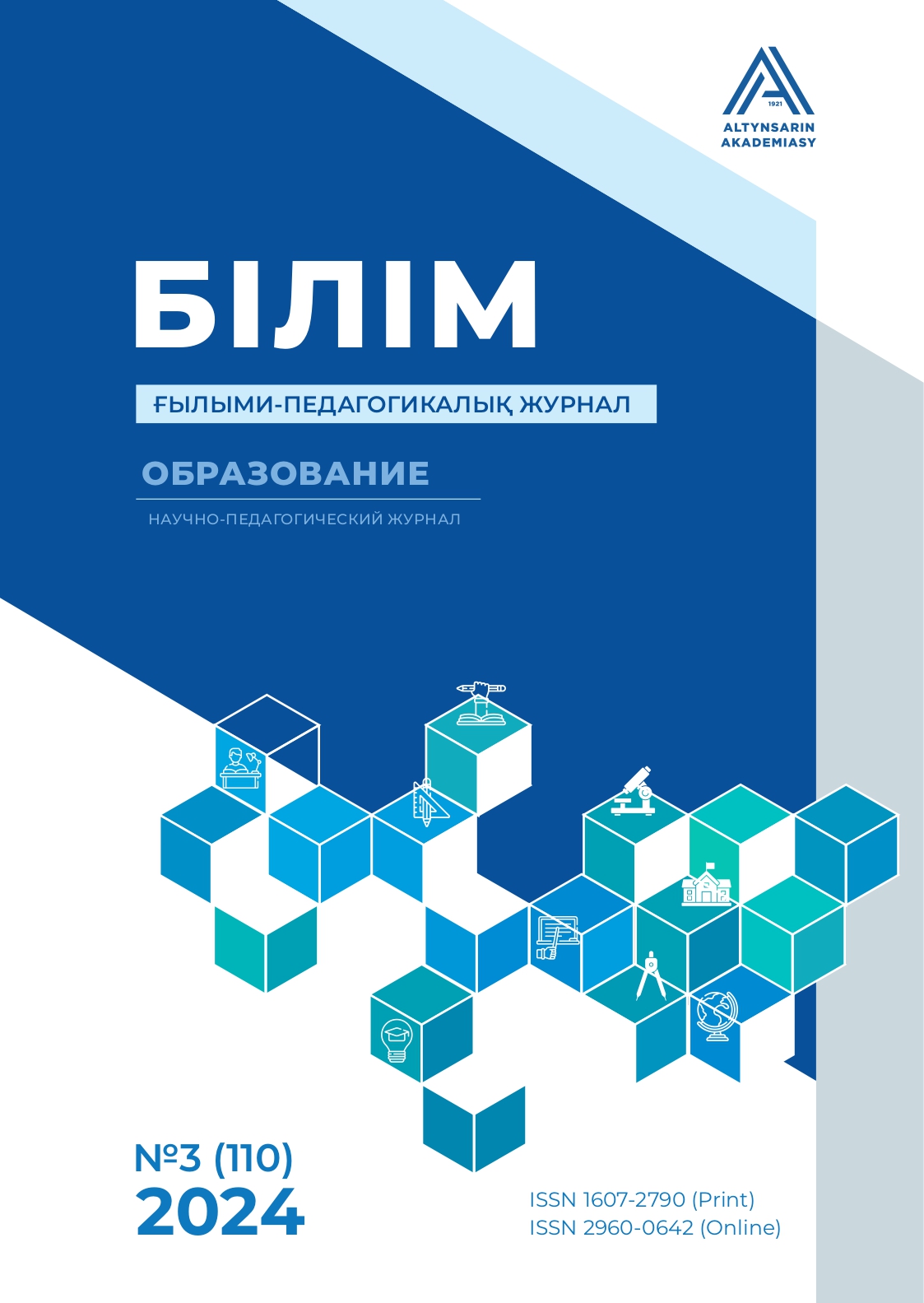Оқушылардың функционалдық сауаттылығын дамытуда оқу тапсырмаларын дұрыс құрастыру және когнитивтік стратегияларды тиімді қолдану
##plugins.pubIds.doi.readerDisplayName##:
https://doi.org/10.59941/2960-0642-2024-3-28-46Түйінді сөздер:
функционалдық сауаттылық, оқу сауаттылығы, PISA халықаралық зерттеуі, бағалау, ішкі және сыртқы бағалау, критерий, метакогнитивтік және когнитивтік стратегиялар, PISA үлгісіндегі оқу мәтіндері мен тапсырмаларыАннотация
Оқу тапсырмаларын құрастыру және когнитивтік стратегияларды қолдану функционалдық сауаттылықты дамытуда маңызды рөл атқарады. Функционалдық сауаттылық негізгі оқу дағдыларынан асып түседі; ол ақпаратты тиімді түсіну, талдау және синтездеу қабілетін қамтиды, бұл академиялық және кәсіби жағдайларда өте маңызды. Оқу тапсырмаларын нақты тұжырымдау; Когнитивтік стратегияларды қолдану; Функционалдық сауаттылықты дамыту. Оқу тапсырмаларын дұрыс құрастыру және когнитивтік дағдыларды стратегиялық қолдану функционалдық сауаттылықты дамытудың негізі болып табылады. Бұл тәжірибелер білім алушыларға мәтіндермен белсенді араласуға, түсінуді жақсартуға және академиялық жетістікке және одан тыс өмірге қажетті өмір бойы оқу дағдыларын дамытуға мүмкіндік береді. Осы элементтерді біріктіру арқылы педагогтар оқушыларды оқу мен оқу орталарының әртүрлі ауқымында өркендеуге тиімді дайындай алады. Мақалада қазақстандық оқушылардың функционалдық сауаттылық өлшемі болып табылатын PISA зерттеуіндегі оқу сауаттылығы бойынша төмен көрсеткіштері және олардың тапсырмаларды орындаудағы қиындықтары айтылады. Бұл ретте мұғалімдердің өздері жасаған PISA тапсырмаларын қолданудың зерттеу тәжірибесі мен нәтижелері және оларды оқыту әдістемесі (когнитивті стратегиялар) жан-жақты талданады.
 ҚАЗ
ҚАЗ РУС
РУС ENG
ENG
